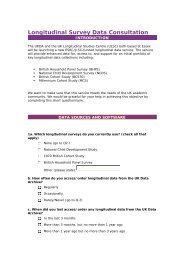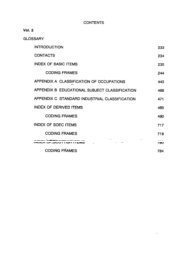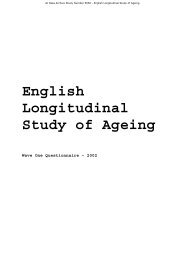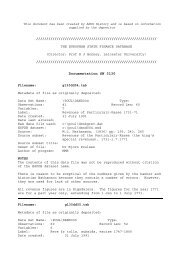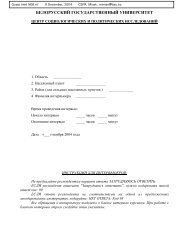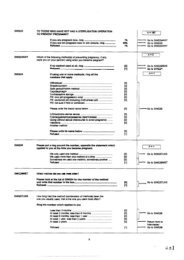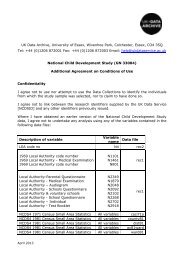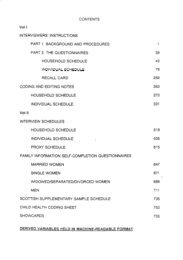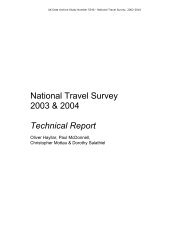The Seven Principles of Public Life - ESDS
The Seven Principles of Public Life - ESDS
The Seven Principles of Public Life - ESDS
Create successful ePaper yourself
Turn your PDF publications into a flip-book with our unique Google optimized e-Paper software.
Figure 1 Most important attributes for national politicians and senior appointed <strong>of</strong>ficials<br />
Base: All respondents (1,097)<br />
Should tell the truth<br />
Should not take bribes<br />
Should make sure public money spent wisely<br />
Should be dedicated to doing a good job for the public<br />
Should not use power for own gain<br />
Should be in touch with what the public think important<br />
Should be competent<br />
Should own up when make mistakes<br />
Should explain reasons for actions and decisions<br />
Should set a good example in their private lives<br />
5<br />
3<br />
12<br />
12<br />
11<br />
17<br />
27<br />
28<br />
25<br />
23<br />
34<br />
37<br />
36<br />
40<br />
45<br />
46<br />
43<br />
46<br />
% choosing as one <strong>of</strong> 3 most important attributes for national politicians<br />
% choosing as one <strong>of</strong> 3 most important attributes for appointed <strong>of</strong>ficials<br />
51<br />
53<br />
(Tables 31 and 78)<br />
In general the results suggest that the priorities <strong>of</strong> the general public, in terms <strong>of</strong> the<br />
attributes they look for in public servants, are similar across different groups in the<br />
population. <strong>The</strong> main exception to this rule concerns private behaviour, which was<br />
considered more important by older respondents and those without educational<br />
qualifications than by other groups, although all sub-groups considered it the least<br />
important <strong>of</strong> the ten attributes.<br />
4 Perceptions <strong>of</strong> the behaviour <strong>of</strong> public <strong>of</strong>fice holders<br />
<strong>Public</strong> perceptions <strong>of</strong> how national politicians behaved in relation to these same ten<br />
attributes revealed mixed views about the standards <strong>of</strong> conduct <strong>of</strong> MPs and government<br />
ministers (Figure 2). While most people believe that overtly corrupt practices such as<br />
accepting bribes are the exception rather than the rule, and the majority credit at least a<br />
reasonable proportion <strong>of</strong> national politicians with being competent and dedicated to public<br />
service, the public is less charitable in its judgements <strong>of</strong> the honesty with which politicians<br />
communicate with the public, reflecting the earlier finding on levels <strong>of</strong> trust.<br />
8 BMRB International Report: Survey <strong>of</strong> public attitudes towards conduct in public life





